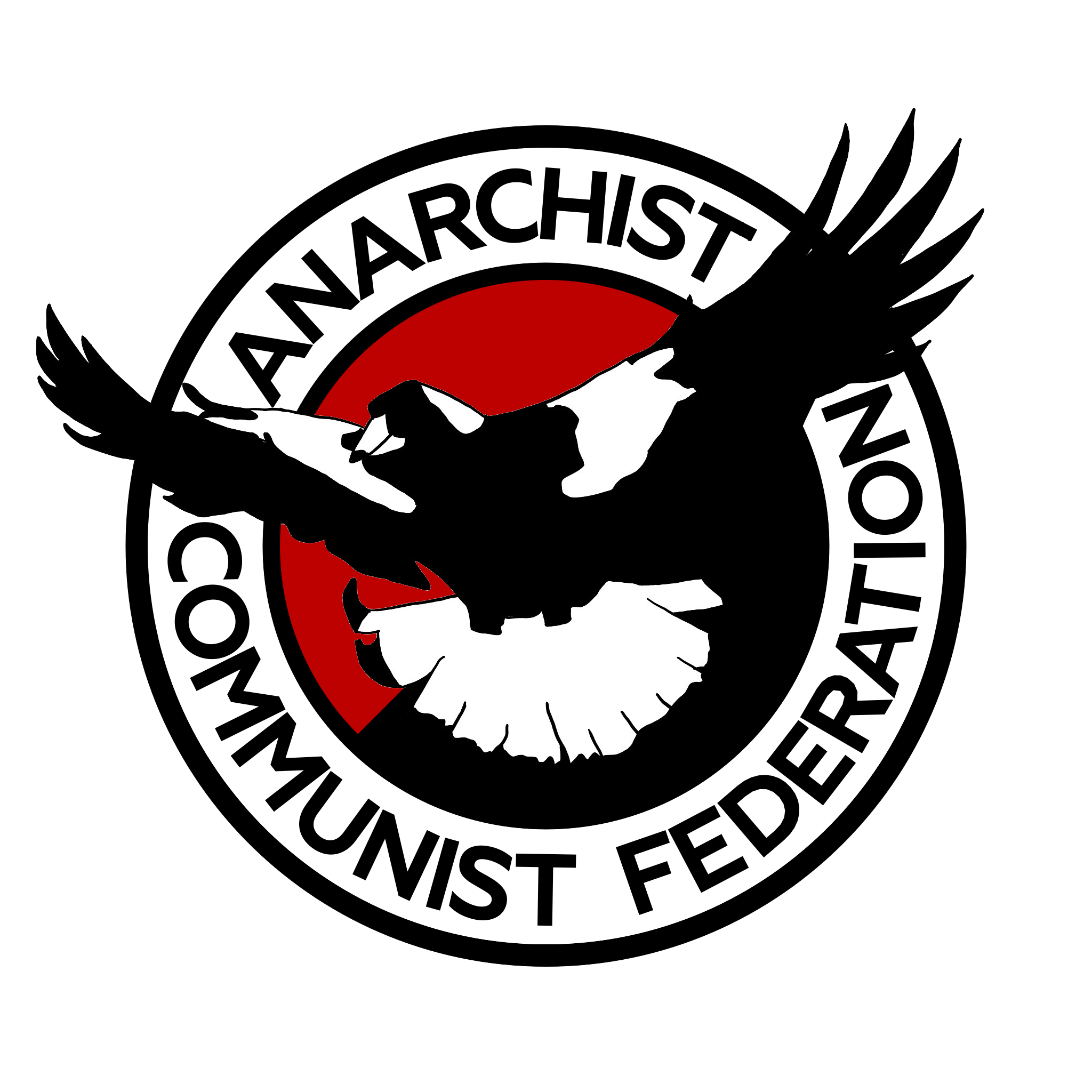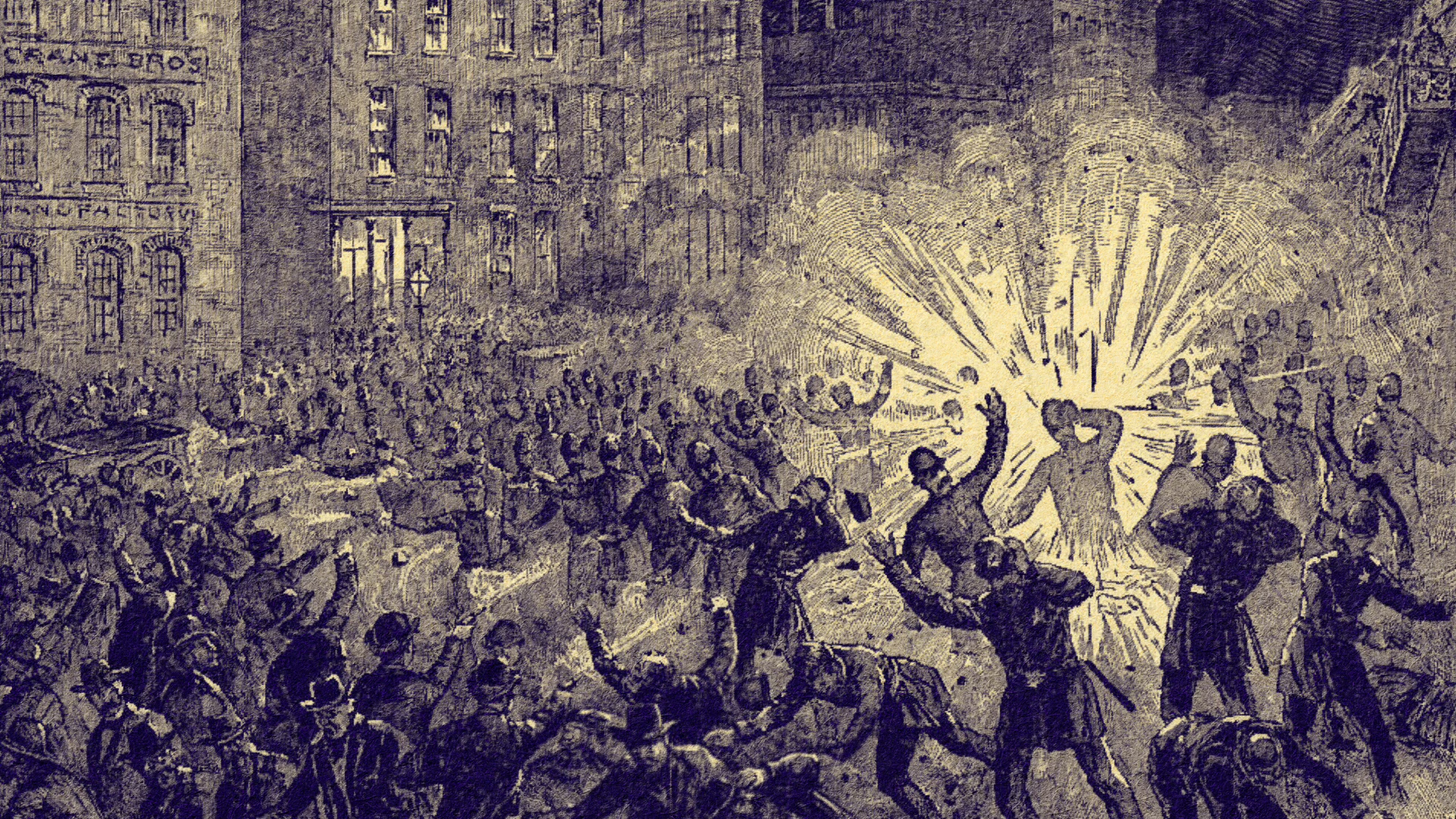On 1 May 1886, 400,000 workers in the United States went on strike demanding the eight hour day. In Chicago, anarchist-influenced unions organised strikes across the city and mobilised tens of thousands onto the streets. As the anarchist labour organiser August Spies was addressing workers at the McCormick Harvesting Machine Company plant in Chicago, police suddenly arrived and attacked the strikers. One worker was killed and six others were seriously wounded.
Three days later, workers gathered at Haymarket to protest police violence. When police attacked the peaceful demonstration, an unknown person threw a bomb into the police ranks. It killed one policeman and fatally wounded six more. Police then opened fire on the demonstration, killing at least four workers and injuring over seventy people. Many of those left alive were arrested.
In the days after the Haymarket Massacre, police rounded up anarchists, socialists and unionists across the city. Eight anarchists were eventually charged as ‘accessories to murder’, without any evidence linking them to the bomb. Five of the eight, Michael Schwab, Adolph Fischer, George Engel, Louis Lingg and Oscar Neebe, weren’t even at the massacre. The other three, August Spies, Samuel Fielden and Albert Parsons, had addressed the crowd at Haymarket.
The prosecution and the police made it clear that these eight people were chosen because of their anarchist ideals and union activity. On top of that, the jury consisted of businessmen and their clerks, and at least one relative of a dead cop — it was a complete sham.
Seven of the eight were sentenced to death. Neebe, the eighth, was sentenced to 15 years in prison. But after massive public outcry, Schwab and Fielden’s death sentences were commuted to life in prison. The bomber, meanwhile, was never identified. On 10 November 1887, Lingg killed himself in his cell. A day later, Spies, Fischer, Engel and Parsons were hanged.
Public opinion stood with the anarchists; 600,000 attended their funeral. Neebe, Schwab and Fielden were eventually pardoned and released by Governor Altgeld in 1893, not out of pity, but because they were all innocent.
The story of the Haymarket Martyrs lives on, and we celebrate May Day to commemorate all those who have lost their lives fighting for a better world.
‘If you think that you can crush out these ideas that are gaining ground more and more every day; if you think you can crush them out by sending us to the gallows; … if death is the penalty for proclaiming the truth, then I will proudly and defiantly pay the costly price! Call your hangman!’ – August Spies, 7 October, 1886

